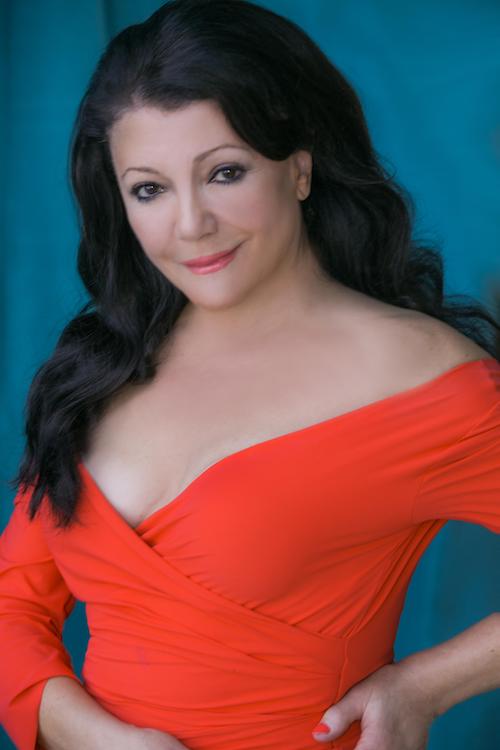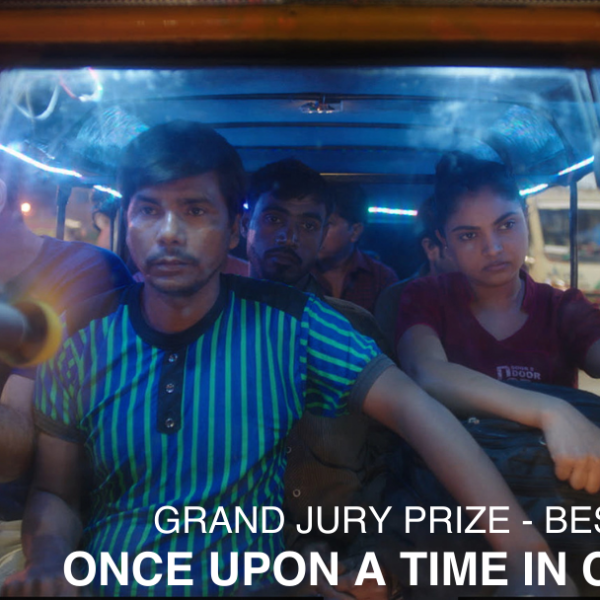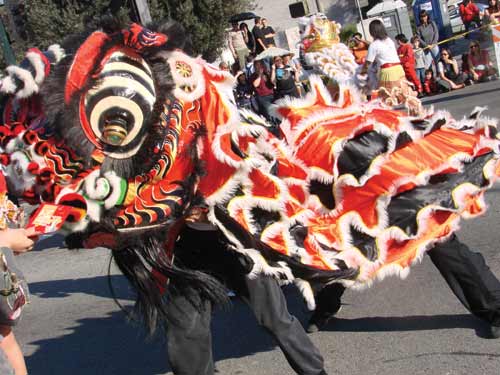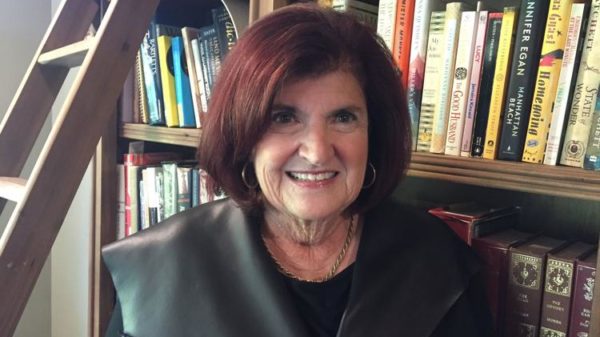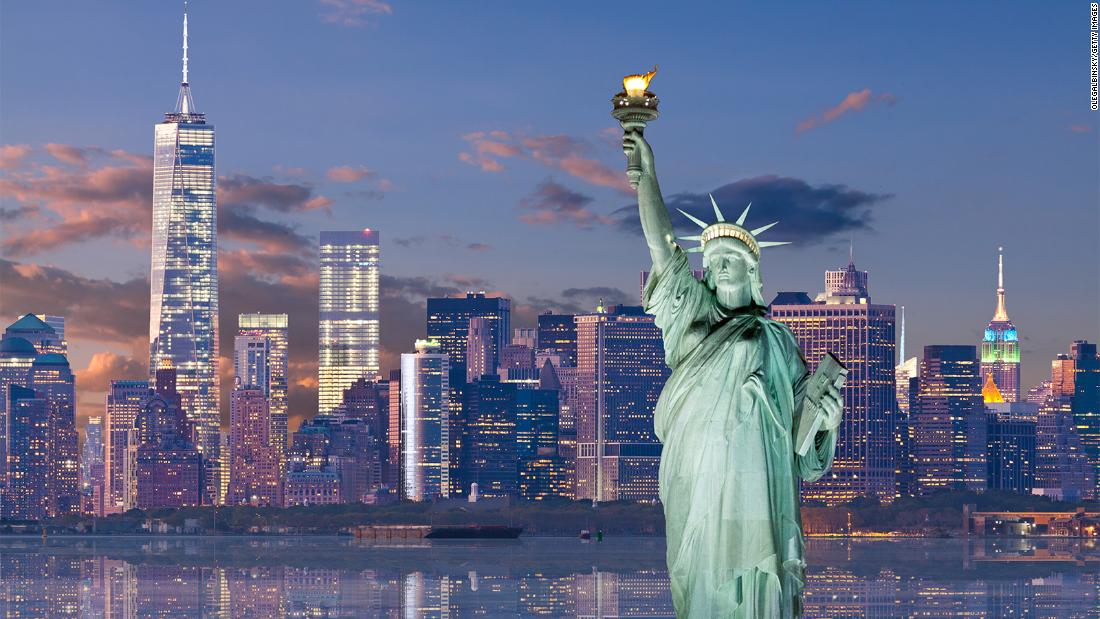Otto Nemenz to be honored with the Legacy Award for Technological Contributions to Motion Picture Industry
Magazine, The Immigrant Experience
The 18th annual South East European Film Festival #SEEfest, co-presented by ELMA, is bringing to Los Angeles U.S. premieres, European talent and an Industry Accelerator with panels and workshops, and a Literary Salon with poetry recital. From April 26th through May 3rd the festival will showcase 56 movies from this culturally rich area in the East and South-East of Europe.
Opening the festival on April 26th with a red carpet gala at the Writers Guild Theater in Beverly Hills (135 S. Doheny Dr, in Beverly Hills) will be the Los Angeles premiere of Kurdwin Ayub’s “SONNE” from Austria, winner of the Berlinale Best First Feature Award last year. As previously announced, during the opening night gala the legendary founder of the world-class camera company, Otto Nemenz will receive the SEEfest 2023 Legacy Award for his role in advancement of technology in the motion picture industry.
Other highights of the festival include: from Romania, Men of Deeds, a darkly comic and tragic tale of rural life and a small town policeman who emerges as a reluctant hero; from Georgia, Adamiani, a documentary chronicle of the transformation of the Pankisi Valley from a hotbed of radical Chechen fighters into a tourist destination; from North Macedonia and Bosnia and Herzegovina, The Happiest Man in the World, which premiered at Venice Film Festival last year in Orizzonti section. Fans of animation will have an opportunity to see the new feature animation film The Island by the celebrated Romanian director Anca Damian, a surreal, comedic reinterpretation of Robinson Crusoe tale, speaking of current affairs through visual poetry and symbolism. The film is a colorful, poetic and funny musical fable. Anca Damian is coming to Los Angeles to present The Island at SEEfest.
Over 80% of the films in competition are premieres: two are world premieres, one is an international premiere, 18 are North American, and 16 U.S. premieres. For the full program line up please visit:
https://seefest2023.eventive.org/films
Festival passes, and tickets to the Opening Gala are available at seefest2023.eventive.org. Related high resolution images can be downloaded here.
Detailed description of each film is included at the end.
Launched 9 years ago, the SEEfest Accelerator platform is an industry section of the festival, structured as a series of sessions and workshops with a small group of filmmakers and Hollywood professionals as mentors. It has become a go-to platform for the independent filmmakers from Eastern Europe and those who live and work in Los Angeles. Two weeks of workshops and sessions with Hollywood industry experts provide insights and feedback, practical tips and a testing ground for pitching and shopping the projects. Most recently, documentary Who I Am Not, one of the previous Accelerator projects, premiered this year at SXSW and is currently traveling on the festival circuit.
This year 12 projects have been selected for the Accelerator, taking place from April 17 – May 3. All workshops and meetings are provided to filmmakers free of charge. For Accelerator participants and mentors, please visit: https://seefilmla.org/2023-festival-program/accelerator/
About the South East European Film Festival (SEEfest): SEEfest presents cinematic and cultural diversity of South and Eastern Europe to American audiences and creates cultural connections through films, artistic and social events. It was founded in 2006 by Vera Mijojlić, long-time film critic and cultural entrepreneur. The 18thAnnual South East European Film Festival (SEEfest) will take place April 26 – May 3, 2023 and will bring a large selection of feature, documentary and short films from 20 countries of South and Eastern Europe.
seefilmla.org
facebook.com/seefest
twitter.com/seefilmla
# # #
PROGRAM LINE-UP
FEATURE FILMS 2023
The Good Driver – Finland/Sweden/Bulgaria
Ivan, a Bulgarian taxi driver living at the Golden Sands tourist resort, is saving money in order to go back to Finland to meet his wife and son, and to make amends for his past mistakes. Money is tight and Ivan is forced to get creative in order to earn faster. This leads him into problems. And if he even gets to the other end of Europe, is it possible to fix what has once been broken?
Director’s Bio
Tonislav Hristov (b. 1978) is a filmmaker born in Bulgaria, based in Finland and Bulgaria. He has directed 7 documentary films that have been screened in numerous festivals around the world, including Sundance, Berlinale, IDFA, HotDocs, etc. His documentary, The Good Postman (IDFA 2016, Sundance 2017), was nominated for the European Film Awards in 2017. Magic Life of V premiered in Sundance and Berlinale 2019. The Good Driver is Hristov’s first feature film.
The Happiest Man in the World – North Macedonia/Bosnia and Herzegovina
Asja, a 40-year-old single woman, lives in Sarajevo. In order to meet new people, she spends her Saturday in a speed dating event where she’s matched with Zoran, a 43-year-old banker. However, Zoran is not looking for love but for forgiveness.
Director’s Bio
Teona Strugar Mitevska is Macedonian born. She started as a child actor, trained as a painter and graphic designer, and studied film at NYU’s Tisch School of The Arts. In 2018, France’s Ministry of Culture awarded her the Chevalier de l’Ordre des Arts et des Letters. She directed her first short, Veta, in 2001, other films include How I Killed A Saint, 2004; I Am From Titov Veles, 2007; The Woman Who Brushed Off Her Tears, 2012; Teresa And I, 2013; When The Day Had No Name, 2017. Her most recent film God Exists, Her Name Is Petrunya won the Ecumenical Prize and the German Guild Film Prize at the Berlin FF 2019. That film has received more than 30 awards internationally, notably the 2019 LUX Prize by the European Parliament, and was sold for theatrical release to over 40 territories world-wide. She is currently in pre-production for Mother, her first English-language film.
Inventory – Slovenia
Boris Robič is, as we say, an ordinary kind of bloke. One evening, however, someone tries to shoot him. The investigations reveal nothing. No enemies, no suspects. After the police close the investigation, Boris starts to investigate on his own. To his surprise, he discovers that he could be hated by more people than he could have ever imagined.
Director’s Bio
Darko Sinko (1979) is a film director from Ljubljana, Slovenia. He graduated from the Film Academy (AGRFT) in Ljubljana and has directed and produced several documentaries and short films. Inventory is his first feature film.
The Island – France/Romania
This new feature animation film by the celebrated Romanian director Anca Damian is a surreal, comedic reinterpretation of the Robinson Crusoe tale that speaks of current affairs through visual poetry and symbolism. The film is a colorful, poetic and funny musical fable.
Director’s Bio
Anca Damian, born in Romania, studied cinematography at the Academy of Theatre and Film Arts in Bucharest. Her second feature, the animated documentary, Crulic: The Path to Beyond (2011, Cristal Award in Annecy), has been shown in over 150 international festivals including Locarno IFF, Telluride, New Directors/New Films, and received over 35 international prizes. Her films include Crossing Dates (2008), A Very Unsettled Summer (2013), The Magic Mountain (2015), Moon Hotel Kabul (2018), and Marona′s Fantastic Tale (2019). Her films have won international prizes including Best Director Award at Warsaw, Mirada International Award at Madrid, and Audentia Award by Eurimages.
May Labor Day – Bosnia and Herzegovina
After ten years of absence, Armin comes to Bosnia to surprise his father with good news. But there’s a real surprise waiting for him at home: His father is arrested as a suspect in war crimes. Armin wants to find out the truth, while others find that it’s easier to live in oblivion.
Director’s Bio
Pjer Žalica, a scriptwriter, director, producer, and editor, was born in Sarajevo in 1964 and is a professor of directing and scriptwriting. A member of the European Film Academy (EFA), his films have been shown at many festivals including Cannes, Toronto, Locarno, London, Tribeca NYC, and have won over 50 awards including European Film Academy (EFA) Discovery – Prix Fassbinder, Special Mention; EFA Annual Award for Best Documentary; Silver Leopard in Locarno IFF; Best First Feature award at the Sarajevo Film Festival; and most recently, Grand Prix for May Labor Day at the Warsaw FF.
Men Of Deeds – Romania/Bulgaria
Ilie, a middle-aged, alienated Police Chief, turns a blind eye when worrisome things happen in his village and only sees what suits him. Events spiral out of control and he is forced to make choices he has been trying to avoid all his life. In this darkly comic and tragic tale of rural life, Ilie emerges as a reluctant hero, at last finding the purpose and courage to mete out justice.
Director’s Bio
Paul Negoescu, born in 1984, studied film directing at the National Film School in Bucharest, Romania. His short films were selected for many international festivals including Semaine de la Critique in Cannes, and the Berlin IFF. His debut film, A Month in Thailand, premiered at the Venice FF in 2012. His second feature, Two Lottery Tickets, became one of the most successful Romanian films at the box office. His third feature, The Story of a Summer Lover, which played at SEEfest 2019, was distributed by Netflix in over 30 territories.
Silence 6-9 – Greece
A man and a woman, Aris and Anna, meet in a dream-like coastal town. The town is full of antennas, which emit the voices of the Vanished Ones, inhabitants of the town that have suddenly and inexplicably disappeared. As we watch the daily life and the bizarre rituals of the inhabitants, rituals devoted to the lost ones, Anna and Aris fall in love. A few days later, Anna suddenly disappears.
Director’s Bio
Christos Passalis has acted in Yorgos Lanthimos’s Dogtooth (Prix Un Certain Regard, 2009 Cannes IFF; Best Foreign Language Film nomination, 83rd Academy Awards), Syllas Tzoumerkas’ Homeland (Venice 2010) and The Miracle of the Sargasso Sea (Berlinale 2019), Vardis Marinakis’ Black Field, and Fiona Tan’s History’s Future. He founded the Blitz Theatre Group in 2004 and has written, directed, and acted in all 15 of the group’s performances in Theatre de la Ville, Berlin’s Schabuehne, Festival d’ Avignon, Onassis Stegi, and other festivals worldwide. His latest theatre work includes The Book of Myself, a series of performances in Athens, and the co-direction with Angeliki Papoulia of Euripides’ Alkistis and Dürrenmatt’s Der Besuch der Alten Dame at the Luzerner Theatre in Switzerland. His co-direction with Syllas Tzoumerkas of the essay film, The City and the City, had its world premiere at the Encounters competition of the 72nd Berlinale, and its NA premiere at New Directors/New Films IFF.
Snow And The Bear – Turkey, Germany, Serbia
In a small, remote Turkish town, winter has always been tough, but this year heavy snow has blocked the roads. No one can get out, and rumor has it that bears have risen early and killed some animals. No one has seen them, but people are afraid, including Aslı, a young nurse appointed here for her obligatory service. In this small town—where the biggest problem for the gendarmes has been bats haunting the police station—the sudden disappearance of a man creates more rumors. Aslı finds herself in the middle of a whirlwind of power relationships, secrets and doubts.
Director’s Bio
Selcen Ergun, a director and screenwriter from Turkey, is a Berlinale Talents alumna and a 2019 Medienboard Nipkow Artist in Residence. She obtained her MA in screenwriting and directing at Istanbul Bilgi University, after studying Industrial Design and Visual Culture at METU. She worked as an assistant director for many national and international productions. Her short films Confrontation and A Sunny Day were selected by FF in Munich, LUCAS Frankfurt, Brussels, Los Angeles, İstanbul, Ankara, and Adana Golden Boll and awarded prizes. Snow and the Bear is her debut feature film.
Sonne – Austria
Three teenage girls from Vienna twerk in hijab and sing a pop song on YouTube which makes them famous overnight, especially among Kurdish Muslims. Yesmin, the only one of the friends who is Kurdish herself, begins to distance herself more and more from her culture. Nati and Bella, on the other hand, seem fascinated by a world that is strange to them. When the girls meet two young Kurdish patriots, the situation threatens to escalate among rebellious young women caught between social media and self-discovery.
Director’s Bio
Kurdwin Ayub, born in 1990 in Iraq, lives and works as a director and screenwriter in Vienna. From 2008 to 2013, she simultaneously studied painting/ experimental animation film at the University of Applied Arts Vienna, and performing arts at the Academy of Fine Arts Vienna. In 2011 and 2012, she won the MehrWERT Short Film Prize at the Viennale and in 2013 the Vienna Independent Shorts Newcomer film prize. Seven of her works were shown in the 2016 Festival for International Independent Cinema in Buenos Aires (BAFICI), at the 2016 Seville European FF, and at the 2012 Viennale. For her feature documentary Paradise! Paradise!, Ayub was director, author and cinematographer. The film won Best Cinematography at the 2016 Diagonale, the New Waves Non-Fiction Award at the 2016 Seville European FF, and the Carte Blanche Newcomers Award at the 2016 Duisburg Film Week. Her 2019 film Boomerang won Best Short Film Jury Prize at the Max Ophüls FF.
Where The Road Leads – Serbia
A stranger arrives in a cut-off village. Locals suspect his involvement in constructing a controversial highway nearby. A few misunderstandings and lies are enough for intolerance toward change to turn into an open conflict. Jana has fallen in love with the stranger and realizes she is the only one who can save him.
Director’s Bio
Nina Ognjanovic was born in Belgrade, Serbia in 1995 and enrolled as a director in film and television at Belgrade’s Faculty of Dramatic Arts where she graduated in 2022. Two shorts made at the academy, A Brand New TV and They Cry, showcased at many film festivals around the world. Where the Road Leads was her thesis project and debuted at Slamdance 2023, where it won Audience Award for Best Narrative feature.
DOCUMENTARY FILMS 2023
Adamiani – Georgia
Pankisi valley in Georgia has been labeled a “cradle of terrorists.” This documentary follows people who are now trying to resist terrorism and turn their lives around. “Adamiani” means “a human” in Georgian.
Director’s Bio
Hirotoshi Takeoka studied Japanese literature at Kindai (Kinki) University before entering Japan’s Image Forum Institute of the Moving Image to study filmmaking. In 2010, he made TV documentaries about people trying to cope with the Chechen conflict in Pankisi Valley of Georgia: Chechen’s Heart of Life was awarded Japan’s Best New Director Award (2014) and Mothers of Change won ATP Best Documentary Award (2019). Adamiani (2022), his feature film debut, won Best Documentary in the Krakow FF.
Bigger Than Trauma – Croatia
Katica, Ana and Marija still suffer trauma 25 years after the Croatian War of Independence. They attend a pioneering program that invites both Serbian and Croatian women to try deep, reformative personal therapy together. Frictions within the group erupt along cultural lines, reinforcing past pain, but this is precisely what is required to cultivate acceptance and peace. Over three years, they shared their most private, damaging thoughts and by virtue of their own courage, transformed from the collateral damage of an old war to more empowered women living today. The discovery of who they could be—without the trauma they’re identified with—changed their lives and relations.
Directors’ Bios
Vedrana Pribačić directed her first film, The Factory is Ours! (2017) for TV, to document how workers took back their factory when new owners threatened to lay them all off. This film won the Audience Award and Special Mention at the 2017 Liburnia FF. Her next feature, Bigger Than Trauma, won Best Film at the 2022 Sarajevo FF, and two Audience awards in that same year at the Liburnia FF and ZagrebDox.
Mirta Puhlovski graduated in film and theatre production from the Academy of Dramatic Art in Zagreb and participated in the Berlinale Talent Campus 2006. She has been an independent producer, organizer and First AD on short, feature and documentary films for 15 years, and has won awards including Best Short Fiction at the Los Angeles FF (2016), New Filmmakers L. A. (2017), Most Popular Fiction & Doc at the Vienna Independent Shorts (2016), and a Cinematic Achievement Award at the Thessaloniki FF. Since 2008 she has produced and general managed Metar 60, an NGO producer of short films and artistic projects. In 2011, she founded the production house Slavica Film. Both have won many awards in festivals worldwide.
The Building – Croatia
On the tenth anniversary of the introduction of workers’ management, the Sisak Iron Mill, one of the largest industrial plants in former Yugoslavia, built an “ideal” settlement for its workers. Sixty years later the film follows a week in the everyday life of the building’s tenants. They watch the building’s grey façade transform with a colorful mural, witness longtime residents leaving the neighborhood, and new unexpected tenants moving in.
Director’s Bio
Goran Dević graduated in Film and TV Directing from the Academy of Dramatic Art in Zagreb, where he currently works as a docent in the BA and MA programs for film and TV directing. He wrote many award-winning documentary films: On the Water (2018), The Steel Mill Café (2017), 65+ (2016), Two Furnaces for Udarnik Josip Trojko (2012), Don Juan: Excuse Me, Miss (2010), The Flood (2010), Happy Land (2009), Three (2008), I Have Nothing Nice to Say to You (2005), Imported Crows (2004) and others. He is co-director and co-screenwriter of the feature, The Blacks (2009), which won the Grand Prix at Ljubljana IFF 2009, Grand Prix at Auteur Film Festival Serbia 2009, FIPRESCI Award and Special Award for Directing at FilmFestival Cottbus 2009, and a Golden Arena for Directing at Pula Film Festival (2009). Retrospectives of his documentaries have been screened at Arsenal Berlin and Crossing Europe FF Linz.
The Chalice Of Sons And Daughters – Romania.
This documentary follows Peli and Nina, a young Roma couple in Transylvania with a 5-year-old daughter who are striving to conceive a son who alone can inherit the family’s badge, the TAHTAIs or silver chalice cup that comes from their ancestors. While living under the tremendous strain of taking fertility and ultrasound checks, their families dispute their rights to the chalice pledged when they arranged the couple’s match. This documentary is a reflection on the strength and resilience of women in a male-dominated society.
Directors’ Bios
Cătălina Tesăr teaches anthropology at the University of Bucharest and is a researcher at the National Museum of the Romanian Peasant in Bucharest. She holds a Ph.D. in anthropology from University College London with a thesis about the sexual, economic, and political dimensions of early-age arranged marriages among the Cortorari Roma from Transylvania. During 15 years of fieldwork in Roma communities , she learned the Romani language; this debut documentary is based on her PhD research. She has published extensively on marriage, begging, houses, and migration among the Roma, and was awarded a Fejos Postdoctoral Fellowship from the Wenner Gren Foundation for Anthropological Research U.S. for the production of this film.
Dana Bunescu co-directed with Mona Nicoară the feature documentary The Distance Between Me and Me (2018). At the 2017 Berlinale, Bunescu won the Silver Bear for Outstanding Artistic Contribution for Călin Peter Netzer’s film Ana, Mon Amour. She has worked as an editor since 2000 on The Death of Mr Lazarescu directed by Cristi Puiu (Un Certain Regard, Cannes 2006), Cristian Mungiu’s films 4 Months, 3 Weeks, 2 Days (Palme d’Or, Cannes, 2007), and Andrei Ujica’s documentary The Autobiography of Nicolae Ceaușescu, (Cannes 2010 (for which she also did sound design). She edited and did sound design for Child’s Pose by Călin Peter Netzer ( Golden Bear for Best Film, Berlinale 2013), sound design of Aferim, I Do Not Care If We Go Down in History as Barbarians, and Bad Luck Banging or Loony Porn by Radu Jude. She also won several Gopo Awards for Best Editing and Sound Design.
Juvenile – Serbia
Over a period of one year the adolescent inmates of the Juvenile Correctional Facility in Serbia search for a way to escape their destiny. The annual New Year’s Eve celebration in the facility may be their only hope. In these few hours—their only opportunity in an entire year—boys and girls will be allowed to spend time together and possibly find love.
Director Bio
Jovan Todorović, a Serbian-American film director based in Brooklyn, holds an MFA from the Faculty of Dramatic Arts in Belgrade, Serbia. His first feature, The Belgrade Phantom, is based on a true story and premiered at IDFA in Amsterdam. His short film You’re Dead, America explores what has happened to he American Dream. Often celebrated for their provocative nature and social impact, his films and branded content have garnered significant press and recognition worldwide, winning multiple FIPRESCI, Cannes Lions, Clio, Ciclope, Shots, Lux, and Golden Drum awards.
King Lear – Ukraine
In the midst of the chaos caused by the Russian invasion of Ukraine, local activist Vyacheslav Yehorov decides to realize his long-held dream of staging Shakespeare’s King Lear. His entire cast are refugees: former teachers, artists, engineers, sales assistants,and housewives. Learning their lines and immersing themselves in the magic of theater gives them a new lease on life and hope for the future.
Director’s Bio
Dmytro Hreshko’s documentary, Save Me, Doctor! (2020), won Special Jury awards in various Ukrainian film festivals. His other documentaries include Mountains and Heaven in Between (2022) and Snow Leopard of the Carpathians (2019).
The Lights Of Sarajevo – Bosnia and Herzegovinia
This film is a time capsule, tracing the long and fascinating history of the cult rock band Zabranjeno pušenje, whose trajectory parallels the tumultuous years of a dying country, the subsequent war, and fragile post-war times. The camera follows band members backstage as they prepare for their biggest solo concert in the very place where they got their start, and recalls legends related to the Skenderija concert hall dating back to the socialist period.
Director’s Bio
Srđan Perkić., a Sarajevo native, has been living and working as a photographer and creative director in Italy since 1994. In 2008, he founded the Gruppo Pragma marketing agency and launched, with architect Goran Dizdar, the Prontacasa project in Sarajevo. Today it is one of the largest European brands for 2D/3D visualization of space. In 2019 he founded the brand NAVA (Not A Video Agency) for the realization of commercial videos. Lights of Sarajevo, his first documentary film, premiered at the Sarajevo Film Festival in 2022.
Scenes With My Father – Croatia/The Netherlands
A young woman time travels through the mysterious past of her alienated Yugoslav father. While searching for answers in a forgotten past, an underlying family trauma unravels.
Director’s Bio
Biserka Šuran is a Croatian film director who lives and works in Amsterdam. Her first documentary Out of Love, about domestic abuse amongst men, got her into the Netherlands Film Academy. In 2015 she graduated as a documentary director with the short Come On, Let’s Go. After development within the IDFAcademy & NPO-fonds workshops in 2018, her feature-length debut, Scenes With My Father, premiered at the International Documentary Film Festival (IDFF) in Amsterdam’s Envision Competition.
This Is Not Me – Turkey
Mustafa, Mehmet, and Yusuf migrate to Istanbul from small towns and conservative families. Mehmet and Yusuf, both married to women, act the part of heterosexual males and family men within their own social circles. Privately, however, they can only live their truth with their male lovers. Mehmet has been passionately in love with Mustafa for 15 years, though he was violently abusive at the beginning because of guilt. Now he is trying to put this passionate but equally traumatic relationship in the past. Mehmet, however, has no desire to let go.
Directors’ Bios
Jeyan Kader Gulsen, a documentary film director and producer, lives in Istanbul and Stuttgart. She completed her post-graduate degree in cinema and media at Germany’s Eberhard Karls Tübingen University after her bachelor’s degree in journalism from the Marmara University Communications Department in Istanbul. In Germany, she directed and produced documentaries and programs for private and public broadcasters ARD, Arte, Deutsche Welle, Pro7/Sat1, and RTL. She worked as documentary director and executive producer for six years at the Al Jazeera television channel where she prepared documentaries on people marginalized by regimes for the People and Power documentary program.
Zekiye Kacak is a documentary film director with a background in television who received her bachelor’s degree in journalism from Istanbul University. She also has an Investigate Journalism Certificate from the International Press Institute (IPI). She worked at news channel NTV for 12 years and received awards from the Turkish Journalists Association in 2006 and 2007. After NTV, she worked as documentary producer-director at the Al Jazeera Television Channel where she prepared documentaries that drew attention to public problems through meaningful individual accounts.
SHORTS PROGRAM LINE-UP
SEEfest 2023 Shorts Program at the WENDE Museum
The Box, dir. Tomaž Pavković, 2023, Slovenia, 20 mins. Narrative short
The sixties and the seventies of the 20th century in Yugoslavia, a country that ceased to be. A young family moves from a rural environment to a small Slovenian town, where factories are being built and the need for a workforce is increasing. The brothers are growing up in that shaky but magical in-between, soaked in the everyday rhythms of the community, infused with the ideology of the time.
Director’s Bio:
Tomaž Pavković is a cameraman, editor, director and multimedia artist. He is a co-founder of Luksuz produkcija, Krško, as well as a mentor for younger colleagues and an author of numerous short films that were screened at various international film festivals.
Lately he is working as a mentor on different film and video workshops in schools and mentoring a Roma minority in multimedia literacy. He is also collaborating with Solo para Cortos short film festival (Barcelona) and Todos Somos Otros festival (Mexico City).
My Neighbour Wolf, dir. Nebojša Slijepčević, 2022, Croatia/Serbia, 17 mins. Narrative short
Villages near the Croatian border with Bosnia are mostly deserted, abandoned by the authorities, and forgotten by the world. The last few inhabitants live in extreme poverty and are left to fend for themselves against frequent attacks of wild beasts. The film is based on an actual event.
Director’s Bio:
Nebojša Slijepčević has directed numerous creative documentaries (Srbenka, Gangster of Love, Something about Life, Real Man’s Film, In 4 Years, Of Cows and People). His films have been shown at the festivals around the world (IDFA, Doc Leipzig, Hot Docs, Karlovy Vary Film Festival…) and they have collected more than 30 awards. His latest documentary feature, Srbenka, was shortlisted for European Film Awards. Nebojsa is teaching documentary directing at Academy of Drama Arts in Zagreb.
Horticulture, dir Silva Ćapin, 2021, Croatia, 15 mins. Narrative short
Upon arriving at their small apartment on the sea, Anđelka and Vlado find the garden neglected, and the roses and oleander withered. They learn that the reason for this is the tragedy that befell their neighbor Marija, a local islander who took care of their oasis of peace out of season. Despite their understanding and compassion, Anđelka and Vlado are restless: the numbers don’t add up, and the calculation is hard to ignore.
Director’s Bio:
Silva Ćapin (Osijek, 1898) is a Croatian film director and screenwriter working as a freelancer. After compleating her studies of Film and TV Directing at the University of Zagreb, she began to work as an external associate at Croatian Radiotelevision (HRT) as a Director in the Cultural, Children’s and Entertainment Program. From 2018 she is writing and directing for the Drama Department of Croatian Radio. Currently, she is in development of her first feature-length Secretary of the Year (Best project of Sarajevo Film Festival Pitch and Pack program with the title On Leave). Her previous short film The Rudeness of a German Lady was a NISI MASA – European Short Pitch winner, and had a vivid festival life. It has premiered at the competition of Trieste Film Festival 2020., and was shown at relevant international film festivals like – Palm Springs International ShortFest, USA 2020 – competition for Best Comedy Short, FilmFestDresden International Short Film Festival and Cinemed – International Mediterranean Film Festival of Montpellier.
A Moving Target, dir Marko Dugonjić, 2021, Croatia, 15 mins. Narrative short.
It is the winter of 1993. While the war rages near the Croatian town of Vinkovci, a portly and tall pregnant woman, Veljka, from an ethnically mixed family, is waiting to give birth. The due date was eight days ago. When she finally goes into labor, there are no men in the house, as all of them are away at the front. Veljka has no choice but to embark on a 60-kilometer journey to the hospital, defying her labor, grenades, and the most dangerous weapon of all – nationalist prejudices and hate.
Director’s Bio:
Marko Dugonjić (Vinkovci, 1992) has earned a Master of Arts degree in Film & TV Directing – Feature Film at Academy of Dramatic Art, University of Zagreb. He is a member of MultiMedia Centre Studio of Creative Ideas in Gunja and Filmmakers Association of Croatia. He works as a screenwriter, director, actor, and assistant director.
Balls, dir Gorana Jovanović, 2022, Serbia, 23 mins. Short documentary
Football stadiums have long been the designated places for the escalation of conflicts and every incident during a football match makes for a fire-starting headline. Meanwhile, the armies of six former Yugoslav republics have been getting together every year for over a decade, for a futsal tournament in the name of peace, in almost complete media silence.
Director’s Bio:
Gorana Jovanović is a filmmaker from Belgrade. Before Lopte (Balls, 2022), she wrote, directed, produced and edited the short fiction films, Mir (2021) and EFA Short Film Candidate, Armadila (2020).
The Eagle’s Nest, dir Milija Šćepanović, Montenegro, 2022, 19 mins. Narrative short
At the end of VHS era, two teenage cinephiles will, on the same day, not only experience their first falling in love, but also far gloomier circumstances in turbulent Yugoslavia already on her deathbed.
Director’s Bio:
Milija Šćepanović was born in 1986 in Bar, Montenegro. He holds a degree in film and TV directing from the Faculty of Dramatic Arts in Belgrade, Serbia, where he was the student of Prof. Slobodan Šijan. Milija is the author of four short films and two documentaries, and directed feature television co-production with the National Geographic Channel, as well as several TV shows.
He has worked as an assistant / assistant director on feature films of several prominent Yugoslav auteurs: Slobodan Šijan, Srdjan Dragojević, and Milos Radivojević.
He is currently in preparation for his first feature film, based on the novel ‘Redemption’ by the renowned Yugoslav author Branimir Šćepanović.
Stairwell (Am Gang), dir Claudia Dermutz, Austria, 2021, 21 mins. Narrative short.
A film about a stairwell, and to be more precise, about the people who inhabit it. It is a cinematic representation of what a silent observer would glean from the lives of the tenants. Moments of everyday life are shown that are seen, heard and felt in the periphery of the stairwell. The stairwell is the connecting element of these “stories” in which these fragments coincide and leave room for interpretation and association at the same time.
Director’s Bio:
Claudia Dermutz was born in Carinthia, Austria in 1979. She studied Multimedia Art and Painting in Vienna before obtaining a master’s degree in Film Directing at the Filmakademie in Vienna. Her focus is the intersectionality between art and film as well as literary elements and narration in film and conceptual art. She has directed various shorts and created numerous Art in Public Space projects. Currently, she is based in Vienna, Austria and Würzburg, Germany.
The Score, dir Aleksandra Bilić, United Kingdom, 2021, 24 mins. Short documentary
In a little house in Reading, Maja Bilić agrees it is time to compose a piece of music that could have defined her career – had it not been for the Bosnian war. To finish the piece she must return home, where her old piano still stands, untouched since 1992, to finally perform her piece of music. The film is an intervention, a collaboration and an immersion between the director and her mother.
Director’s Bio:
Aleksandra Bilić is a director and producer specialising in documentary films; she is originally from Bosnia but her family fled to the UK during the Bosnian conflict. She is interested in work which deals with issues of displacement and working with female talent. She directed a short film Sounds of Tehran as a collaboration with a female sound designer Nesa in Iran. Her second project as a director, The Score, is a film made from an urge to give back to her mother who sacrificed a lot for her. She hosted and helped create a podcast called Untold Killing in collaboration with Remembering Srebrenica which recently received a Lovie award. Recent producer credits include The Great Hack, The Masses. She is an alumni of Berlinale Talents in Sarajevo 2016, Sheffield Future Producers 2017, IDFAcademy 2017 and Film Independent Documentary Lab 2020.
Granny’s Sexual Life, dirs Urška Djukić & Émilie Pigeard, Slovenia, 2021, 10 mins. Animated short
Four old women, reflect on their memories of old times, when they were young and how different the relationships between men and women were back then. Their voices merge into one single voice, that of the grandmother Vera, who tells her story in proper detail. A trip into a grandmother’s youth and the memories of her intimate life illustrate the status of Slovenian women in the first half of the 20th Century.
Directors’ Bios:
Urška Djukić (1986), Director, studied at the Academy of Arts in Nova Gorica. Her short film Bon Appétit, La Vie! won the award for Best Short at the National Festival of Slovenian Film 2016. In 2018, she was invited to participate at SEE Factory, a joint project for young directors curated by Directors’ Fortnight and Sarajevo Film Festival. There she co-directed a short film The Right One that was presented within Cannes 2019. The same year she was selected for the 39th Cinéfondation Residence where she developed her debut Little Trouble Girls. In 2021 Urska continued the development of her debut film within Torino Film Lab. By combining live-action, animation and various forms of experimental techniques Urška Djukić creates hybrid visual narratives and is especially focused on exploring topics of contemporary womanhood.
Émilie Pigeard – Director, Graphic author
Émilie was born in 1990 in the French town Les Lilas. She dreamed of becoming either a magician or a lawyer. In the end, after a year at the Sorbonne, she entered the prestigious Arts Décoratifs school in Paris, specializing in Animation. Alongside painting, illustration and animation, Émilie has a natural flair for storytelling, as well as a great sense of humour. After five years of research, much wordplay and some hard graft, she earned a distinction for her short graduation film Encore un gros lapin ? (or Big bunny again?) which was noticed and produced by Les Films Sauvages.
In 2014, Émilie studied at the German Hochschule für Film und Fernsehen (HFF) as part of an Erasmus exchange. There she met Anna Bergmann, a German film-maker who shared the same enthusiasm for animated movies. Since then Émilie has been making films as a freelancer in Paris, while continuing to draw and run workshops for kids.
Živa (The Death of the Goddess Živa), dir Nataša Prosenc Stearns, Slovenia, 2022, 10 mins. Narrative short
Živa (The Death of the Goddess Živa) is inspired by the Slovene national epic The Baptism of Savica (1836) by France Prešeren. Živa was a pagan goddess of love and prosperity. The meaning of her name is Life, Alive, Living. The poem about the violent Christianization of the Slovenes depicts Živa as being replaced by Virgin Mary.
Director’s Bio:
Slovenian born visual artist and filmmaker Nataša Prosenc Stearns earned her BA at the Academy of Fine Arts in Ljubljana. She moved to Los Angeles on a Fulbright Grant for her MFA at California Institute of the Arts. Her body of work ranges from single and multi-channel videos, video installations, short and feature films, video objects and print media. She is known for creative use of non-gallery spaces and large multi-channel installations. Her films Souvenir, (released by Cinema Epoch), The Trial of Socrates, (collaboration of 23 filmmakers), Hotel Diary and others explore innovative strategies in storytelling and visual expression.
Nataša’s films have been shown in festivals such as SXSW, Brooklyn Film Festival, LA Short Film Festival, Chicago Independent Film Festival, Pacific Film Archives Berkeley, RedCat at Disney Music Hall in Los Angeles, Ibiza Cinefest, Films de femmes Paris, AVIFF Cannes and others; her artwork has been featured at the Venice Biennale, in Douloun Museum of Art in Shanghai, ARCO Fair in Madrid, Lancaster Museum of Art and Tel Aviv Museum of Art among others. She is a recipient of the Durffee and Soros Grants. Nataša lives in Los Angeles and in Ljubljana Slovenia.
Retreat, dir Anabela Angelovska, Germany, 2022, 30 mins. Short documentary
Thousands of young women and men have been recruited in North Macedonia to work in kitchens and laundries of US military bases in Afghanistan and Irak. With the withdrawal of the last US troops in 2021, they came back and brought with them quickly-earned money, soon invested in real-estate, but also traumatic memories.
Director’s Bio:
Anabela Angelovska lives and works in Hamburg, Germany. She studied visual communication with a major in film and media philosophy at the Academy of Fine Arts Hamburg and has lectured at art academies and universities since 2005. Her films and video installations, which focus on constructions of identity and take a critical look at representation, have been presented internationally in art institutions and at film festivals. Her documentary Hakie – Haki. Living as a Man. premiered in the Perspektive Deutsches Kino section at the 65th Berlinale in 2015.
Message From the Future: Bosnia Greets Ukraine, dir Edward Serotta, Austria, 2022, 17 mins. Short documentary
Thirty years ago, during the longest siege in European history, Jews and Bosniak Muslims, Serbian Orthodox and Croatian Catholics, came together in the city’s last synagogue so they could give to their neighbor’s food, medicine and hope. In this short film, six of those volunteers have a message for Ukrainians today: “They tried to kill me. They didn’t. I survived. And so will you.”
Director’s Bio:
Born in 1949, Edward Serotta, director of the oral history institute www.centropa.org, has worked as a writer, photographer and filmmaker since 1985. The author of four books and four 20-minute films for ABC News Nightltine, he has produced three podcast series based on the Centropa archive and written for newspapers and magazines in the US and Europe. His current focus in Ukraine.
Teatralna Station (ТЕАТРАЛЬНА), dir Alina Panasenko, Ukraine, 2022, 16 mins. Narrative short
Tymofii is a little pickpocket. He lives his normal life until he suddenly falls in love with the lady station officer at the Teatralna Station.
Director’s Bio:
Alina Panasenko is a photographer, and filmmaker. She was born in 2000 in Severodonetsk, Ukraine, and studied screenwriting at the Kyiv National Karpenko-Kary Theatre, Film, and Television University. She also attended School of Conceptual and Art Photography MYPH, and is a member of MYPH collective. Her previous work as director includes “20-11-7.mp4”, winner of the 2021 Best National short film at Molodist KIFF. She completed “Teatralna station” in 2022. – https://www.alinapanasenko.com
1 Kilo – 3 Euro, dir Ani Mrelashvili, Germany, 2022, 16 mins. Short documentary
Maka runs a small Georgian parcel shop in Berlin. It is a place that does not exist on Google Maps and can only be found if you specifically look for it. The store is an anchor point for Georgians who send parcels to their loved ones in their faraway homeland. Each package comes with its own story. What emerges is a small Georgia to soothe nostalgia.
Director’s Bio:
Ani Mrelashvili was born in 1995 and raised in Tbilisi, Georgia. At the age of 18 she moved to Germany and studied Comparative Literature at the University of Berlin (FU Berlin). At the same time, she worked on various film sets and started to realize her own short film projects. She writes prose and poetry and performed at the 2021 Berlin Poetry Festival. Since 2020 she has been studying Directing at the Film University Babelsberg Konrad Wolf.
Money and Happiness, dirs Ana Nedeljković & Nikola Majdak, Serbia, 2022, 10 mins. Short animation
The hamsters live and work in Hamsterland, a perfect state with a perfect economy. The GDP grows steadily, there is no unemployment, and 100% of the population declare themselves to be happy.
Directors’ Bios:
Ana Nedeljković was born in Belgrade in 1978. She graduated in painting from the Faculty of Fine Arts in Belgrade. She was awarded a PhD in art practice at the same faculty. She is a visual artist, director, animator and educator.
Her first film “Rabbitland” (directed by Ana Nedeljkovic, Nikola Majdak Jr, 2013) was awarded the Crystal Bear at the Berlinale. It has also received numerous other awards and has been shown at more than a hundred festivals worldwide. Her second film “Untravel” (directed by Ana Nedeljkovic, Nikola Majdak Jr, 2018) was also screened at numerous festivals including Berlinale, Annecy and Sundance, and nominated for the Annie Award.
https://www.ananedeljkovic.com/biography/ ;
Nikola Majdak Jr – For the past 20 years he has been a freelance cameraman, animator, director and lecturer. His film”Rabbitland” (2013) was awarded the Crystal Bear at the Berlinale. It has received numerous other awards and has been shown at more than a hundred festivals worldwide. His film Untravel (2018) was screened at Berlinale, Annecy and Sundance, nominated for the Annie Award and received numerous awards.
SHORTS PROGRAM AT THE LAEMMLE THEATRES & UCLA BRIDGES 2023
AFFRICATE (Fiction)
Klára is raising her two teenage daughters alone. Léna, the elder, has a movement disability. The three of them go on an off-season holiday to the seaside, where they encounter Mark, a young hotel worker. The young man invites the girls to participate at the hotel’s talent show. His flirtation disturbs Klára. While Léna and Gréti perform their dance on the stage, Mark leaves the show. Klára is angered and decides to tell him off. When she finds Mark on the shore, their fight turns into a sudden intimacy that exposes the woman’s desires.
AIRHOSTESS-737 (Fiction)
On a Boeing-737, Vanina, a 39-y.o. flight attendant, tries hard to hide her obvious discomfort. Everyone seems genuinely worried about her while she goes on complaining about her new braces. She blames her mother for not taking care of her teeth when she should have. However, her colleagues know; this plane carries her mother’s dead body to her hometown. When the turbulence becomes threatening, Vanina faces an urgent need to see her mother in what proves to be the last chance for reconciliation.
CHIATURA (Fiction)
Eliso is a cable car operator in Chiatura, a mining town in the Republic of Georgia. After the death of her husband in a mining accident, she launches a personal battle against the mining company and the entire city by putting a stop to the cable car system.
DAPHNE (Fiction)
Divorcee Daphne lives with her 10-year-old socially awkward son, who hardly communicates with her. She works from home due to the pandemic’s restrictive measures, so she has no other social interaction. She signs up on a dating app and switches from one sexual partner to the next, but does not seem to be satisfied – at least not with what she thought she needed; until she finds a wounded dog in the street. How far will she go to feel affection once again?
IN VAIN (Fiction)
A mysterious figure rises from dried earth and descends upon a drought-stricken town, driven by thirst, like Tantalus. Nature, or some God, has given out punishment, and there’s no hope for sharing water.
INTERMISSION (Animation)
Repetitive still standing movement, an exploration of the visual image for its own sake. A projection of mental images, which are formed while listening to music. From the simple act of drawing a line, to the intricate movement and complex structure of animation that is able to self-generate.
LIQUID BREAD (Fiction)
Southern Slovakia. Hot summer days. A family of three generations meets under one roof. An unexpected visit from Zoja, the granddaughter, stirs up the peaceful routine. Within the quiet presence of God and alcohol, the family untangles its tragicomical past and reveals a few (almost) unsaid secrets.
MEMOIR OF A VEERING STORM (Fiction)
What happens to a female doe deer during their reproductive period? What does a young female body feel during and after an abortion? Can a storm erupt in a girl’s psyche while she is unconscious? It is a warm morning in September. A storm is on its way. Anna, 15, skips school to go to the hospital. There, she will confront an experience that will bring about a sudden maturity. Αt the end of the school day, her mother is waiting outside the school gates to take her back to the house. In the film, the mother drives a fifteen-year-old girl to school in the morning and picks up a woman in the afternoon.
ON XERXES’ THRONE (Fiction)
A dystopian workplace at the Perama shipyard. A ban on physical contact has turned human interaction into otherworldly simulations. The suppression of touch has alienated the workers’ communication, transforming the boatyard into a charged landscape of alienation and repressed sensuality beyond stereotypical heteronormative desires. According to local legend, the Persian King Xerxes watched the overwhelming defeat of his fleet from his throne on the rocky peaks of Mount Egaleo, in today’s Perama.
ONLY THE DEVIL HATES WATER (Fiction)
Boris and Kira’s friendship is put to the test when Boris, influenced by his grandmother, starts to suspect that his friend is a soul of the Devil.
PLIMA (Fiction)
Zora learns of her great grandmother’s death when the family’s inheritance and land rights come into question.
PSYCHOGRAPHIC (Animation)
The defragmentation of the past; the painter, mother and child make up the nucleus of the family. The loss of the mother leads to the dissolution of memory, and memories become signs, ritually stuck in infinity. The artist’s artificial space puts him at odds with his surroundings. After it sinks into a kind of darkness of the soul, it plunges deep into itself. Through fiction, there is a common spiritual experience in which he and the child realize closeness. By means of art itself, he finds his way to reconciliation. His art becomes the gateway to a surreal spiritual space in which he questions the humanistic dimension of his own art.
REMEMBER WHEN I USED TO RIDE A WHITE HORSE
A waitress goes about her daily routine serving coffee whilst having thoughts of escaping her reality. A costumer is constantly recording and listening back to the surrounding sounds of the café and is completely fixated by this task. Apathy is a condition that leads consciousness into stagnation, but do either of them realize that they are, themselves, examples of this condition?
REVELATION OF JOHN (Fiction)
To live one’s last days in peace and fulfillment in the company of a loved one. Light and the buzzing sound of cosmic orbs. A quiet film that rejects the consumer world, medicine, and the eternal rushing and pays homage to peaceful old age with a touch of spirituality and intimacy.
SALUTE TO THE SUN (Animation)
An astronaut in love orbits around the sun absorbing its energy. But the sun is too big, causing their connection to break, and the astronaut must continue on his own. As he tries to return to his source of energy, he realizes there are others like him. What started out as a game, slowly turns into a love triangle. Shapes change, but their needs remain the same.
SNOWDROPS AT THE END OF THE TRAIN (Fiction)
In an eco-post-apocalyptic world, the flowers are the only source of energy and only a few holders of expensive bonds can have access to electricity. Eva R., a Garden power plant worker, sees no future for herself and applies to the Bureau for assisted suicide. In the midst of the most hopeless circumstances, however, there is a sliver of hope – snowdrops that love music.
STEADY FLOW (Fiction)
Nothing turns out as planned when a young man takes a girl out on a first date. Smitten by her, while running away from troubles at home, he takes her to a hidden spot where the city’s sewage flows into the river. His odd romantic gesture works out perfectly as they grow closer and closer until he learns she’s leaving town for good in a week. After an urgent family phone call, he suddenly leaves and suggests she waits for him there. There is still a sense of magic and hope in the air, as she waits for him by the river, looking a bit stunned.
THE LEGEND OF GOLDHORN (Animation)
A hunter heads out to the mountains to mend his broken heart. On his way, he can’t escape the visions of his lover who left him. As he loses his mind, his dark side comes to life. The shadow guides him to hunt the mythical Goldhorn and ultimately leads him to his demise. Based on the Slovenian folktale, a story about greed and our relationship towards nature. The score is made with traditional Slavic instruments.
WATER BALLOONS (Fiction)
A ten-year-old boy is spending summer days in his hometown. Having no real friends, he’s constantly being exposed to violence and teasing by other boys around him. His younger brother is the only person who really cares about him, but that’s not enough.
#SEEfestLA #SEEFilmFestival #EuropeanCinema #IndependentFilm #CulturalDiversity #FilmFestivalLA #ELMA #Cinephile #OttoNemenz #LegacyAward #KurdwinAyub #SONNE #BeverlyHills #RedCarpetGala #CinematicJourney #UniversalStories #20Countries #CaucasusMountainWreath #TranscendingBorders #UnderstandingThroughFilm #LAEvents #FilmLovers #Hollywood


